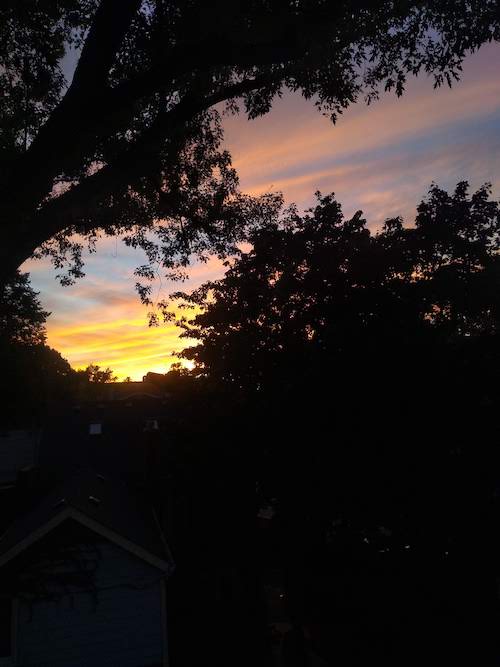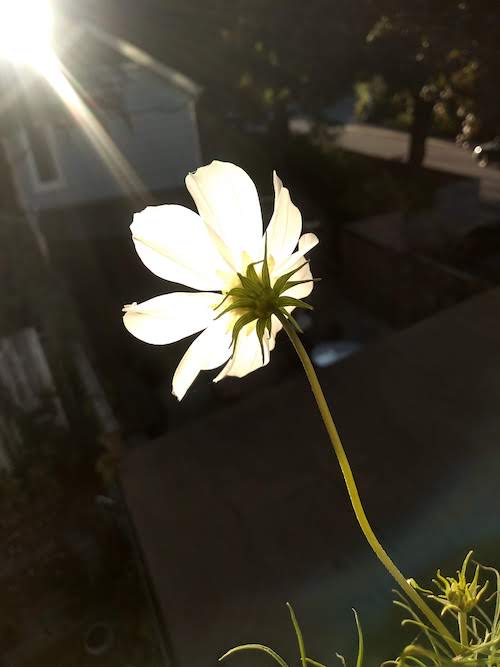October 3, 2022
Prismatic Thinking

I have a problem with proportion, with understanding proportion. I have a problem understanding just how big the world is and what words mean, and I have anxiety that causes me to leap to extremes, which I think is a more recent development, since everything became so extreme, but I’m not completely sure.
“The town is destroyed,” someone DM’d me last May after a tornado blew through a small town not far from where I live, and I still don’t know what they meant by that, exactly, and I thought about it again while obsessively following the news of hurricanes over the last week and a bit, clicking on headlines with words like “catastrophic” and “devastation”—see my previous point, I have anxiety—and trying to parse the scale.
Everyone I know who lives in places impacted by these storms came through them okay, relatively speaking, some with trees down, one lost a barn roof, another now on Day 9 without power, but still. Everyone I talked to remarked on how lucky they were, which is a human tic I’ve been picking up on since March 2020. Not on social media, where complaints run amok, of course, the common discourse, but in real conversations, these comments immediately followed by empathy for everyone who’d been less fortunate, and it’s patterns like that this make me despair a little less. That make me almost fond of people as a species.
But I still don’t understand what counts as catastrophe, what it means to be devastated, and I think a big part of this is a longing for everything to be okay, for me to find signs of that okayness, to look for the helpers, to quote a cloying phrase. Silver linings. There must be hope, and so there is, and there is, absolutely, because look how much was not destroyed, look at the persistent shoot taking root in a crack in the pavement. There is life, there is promise, but there also comes a point where this becomes denial of reality, a refusal to look upon how high are the stakes of climate change.
All these storms. And there have always been storms. And yet.
But I still don’t know.
I’m bothered by people who flippantly use terms like “the world’s on fire…” Partly because it scares me. I feel like that if the world’s on fire, than it’s not really the time for being glib. And partly because there have always been fires. (I’m doing it again, I know.) But mostly because the world is far too large for it ever to have been one thing, on fire, or otherwise, to be reduced to a single state, and this is what has been racking my brain about these last few months, or possibly forever. How to connect the infinitude all of these dots, this data, especially the parts that don’t connect at all.
I feel like the beginning of possibility for making sense of any of this might lie in the following passage, by Willow Defebaugh, Editor-in-Chief of climate/culture journal Atmos:
“I suppose that’s what it means to see the world through a prismatic lens. It requires us to embrace contradiction and multiplicity, to never be afraid of letting New perspectives read pattern our own. It’s about accepting that life is a kaleidoscope of every human imaginable, in shades of both light and dark, at once disarmingly fragmented and breathtakingly whole. And in those dazzling shards, we find our humanity reflected back at us—jagged, brilliant, and gleaming with possibility.” (Found here.)







Having read your blog for many years now, I think you actually do have a very good sense of proportion and more importantly, of balance. I hope you can find your way to trusting your solid ethos and intelligence – your north star. There is so much exaggeration, hyperbole and fear mongering in all forms of media – it sells – but it is not always accurate. Trust the accounts of your friends. Trust the gratitude they feel that their circumstances were not worse. Trust your heart – it’s big and kind and smart and true. I’d trust it to the end of the earth and back again. You’ve got this – prism or no prism (‘though I love concept of the prismatic lens). xoxox